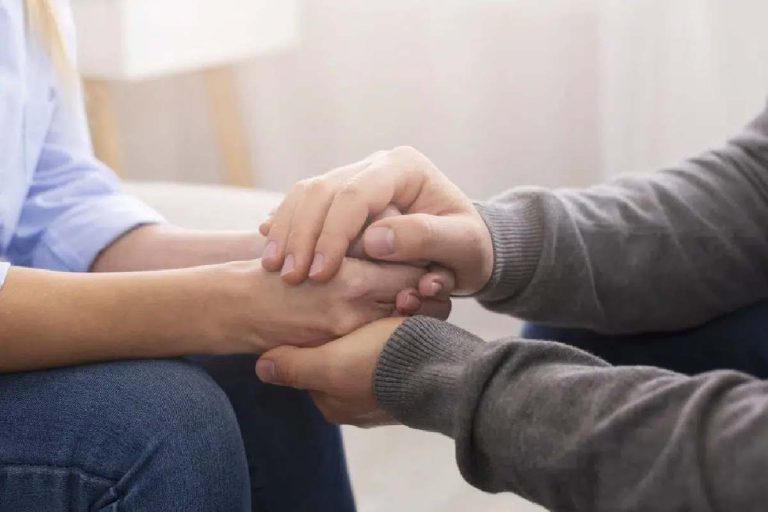Giving Back: Helping Others After Overcoming Addiction
Overcoming addiction is often a transformative experience that offers profound insights and a renewed sense of purpose. Many individuals find that dedicating time to helping others who are facing similar struggles not only strengthens their own sobriety but also contributes to a greater sense of community well-being. Giving back can take many forms, from sharing personal experiences to mentoring or engaging in substance abuse education. Keep reading to explore how contributing to the recovery of others can enrich your own journey to sustained wellness.
Table of Contents
Mentorship Programs: Guiding the Next Generation to a Brighter Future
Mentorship plays a crucial role in recovery, offering individuals who have found stability the chance to support those newer to the process. Through one-on-one guidance, mentors share personal insights and coping strategies, providing real-life advice tailored to the unique challenges of their mentees. This peer-to-peer connection is an essential part of many treatment models, including those at Los Angeles luxury rehab centers, where mentorship helps strengthen the recovery journey.
For mentors, helping others in recovery reinforces their own sobriety and adds a sense of purpose. This rewarding experience can even inspire some to pursue further education in substance abuse counseling, allowing them to expand their impact and transition into professional roles. By becoming mentors, individuals not only aid others but also deepen their commitment to healthy living.
Volunteering as a Pathway to Strengthen Sobriety
Volunteer work is a valuable tool for personal growth and sobriety, offering a structured environment for individuals to apply their skills and time towards meaningful causes. It also fosters social interaction and connections with like-minded individuals, helping individuals in recovery shift away from self-centered behaviors.
Volunteering fosters empathy and accountability, essential for a healthy, sober life. Opportunities for volunteering can align with passions and interests, providing a sense of purpose beyond personal gain. Whether it’s helping at a shelter, participating in cleanup drives, or fundraising, volunteering boosts morale and community belonging. Choosing the right volunteer work can lead to a new life narrative, filled with joy and pride.
Sharing Your Story: Inspiring Others on Their Journey to Recovery
Sharing personal narratives about addiction and recovery can provide hope and inspiration to others facing similar challenges. It humanizes the experience and creates accountability, a sense of trust and relatability among peers within the recovery community. Sharing stories can be done through various platforms, such as speaking at support group meetings or participating in awareness campaigns.
Each narrative has the potential to reach someone in need, potentially influencing their decision to seek help or persevere through their recovery process. Sharing personal struggles can be a rewarding and impactful method of giving back. It requires readiness and comfort with public vulnerability.
The story of recovery can inspire different individuals in unique ways, underscoring the interconnectedness of the recovery community. This exchange of experiences contributes to a supportive network, vital for sustained sobriety.
The Healing Power of Giving Back After Addiction Recovery
For those in recovery from addiction, giving back to the community can be a powerful way to reinforce their commitment to sobriety. Volunteering or advocating for others struggling with addiction offers a sense of purpose and boosts self-esteem, helping to restore the confidence that may have been damaged during active addiction. Additionally, this act of kindness not only benefits the giver emotionally but also helps break down the stigma surrounding addiction, fostering empathy and understanding in the community.
Engaging in altruistic activities also strengthens psychological resilience, reducing feelings of isolation common in recovery. It allows individuals to connect with others, promoting a sense of solidarity. For those with an online drug counseling degree or experience in the field, this work can deepen their understanding of recovery’s importance and provide a renewed appreciation for their own sobriety. Giving back becomes a cornerstone of one’s sober identity, reinforcing long-term commitment to a drug-free life.
Organizing Community Events to Raise Awareness and Foster Support Networks
Community events aimed at raising awareness about addiction and recovery serve multiple purposes, including providing a public platform for discussion, reducing stigma, and building a community of support. These events, such as walkathons, workshops, and art exhibitions, promote solidarity and collective action against substance abuse.
Organizing these events requires leadership and project management skills, offering recovering individuals a challenge for personal development. They attract diverse audience members, extending the circle of support. Collaboration with other organizations, treatment centers, and healthcare professionals enhances the success of these events. Participation in these events can be a powerful advocacy tool, sharing success stories, educating the public, and discussing policies for recovery.
Altogether, giving back after overcoming addiction can be one of the most rewarding aspects of the recovery journey. It has the power to heal, inspire, and strengthen both the individual in recovery and those they reach out to help. The act of contributing to the greater good fosters a fulfilling journey of continuous sobriety and meaningful community connection.


